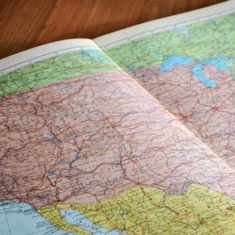States Are Betting on Sports Betting Legalization
 The US Supreme Court promised a ruling on the New Jersey Sports Betting case (officially known as Murphy v. NCCA) sometime this spring, but states aren’t waiting around.
The US Supreme Court promised a ruling on the New Jersey Sports Betting case (officially known as Murphy v. NCCA) sometime this spring, but states aren’t waiting around.
Already, 20 states have either passed or introduced bills to legalize sports betting within their borders. All of these bills are, of course, contingent on the still awaited Supreme Court decision.
According to the ESPN sports betting bill tracker, full scale legalized sports betting currently exists in only one state, Nevada. Five more states—Connecticut, Mississippi, New Jersey, West Virginia and Pennsylvania—have passed bills that would legalize sports betting if the Court rules to overturn the national ban on sports betting; over ten more states have introduced, but not yet passed, bills to do the same thing.
This flurry of state legislative activity has all been fairly recent, in anticipation of the Supreme Court’s decision. If the Court decides to overturn the federal Professional and Amateur Sports Protection Act of 1992 (PASPA), it will open the floodgates to a major potential new revenue source for states.
States are not the only entities predicting that the Court will rule in favor of allowing them to legislate their own terms for sports betting.
Even sports leagues, the original opponents to legalization in the Supreme Court case, are preparing for PASPA to be overturned. Both the NBA and Major League Baseball are laying the groundwork, asking states to include a 1 percent “integrity fee” payable to them under the new sports betting laws.
If such integrity fees become enacted, the groups say they will use a portion of those funds to quash cheating attempts and keep things fair. It’s in each league’s interest to keep game-fixing out of sports betting, but only the NBA and MLB have acted so far. Meanwhile, the NHL, NFL, and NCAA appear to be taking a “wait and see” approach.
If the Court does overturn PASPA in its upcoming ruling, neither states nor sports leagues want to be caught by surprise. However, it will be up to the still pending Supreme Court decision to confirm or crush their anticipation.
